
Where Are They Now? Tracking the success of Imperial Incubator graduates
Imperial College London’s award-winning incubator sits at the heart of White City Innovation District, which is fast becoming one of the world’s most influential and impactful innovation districts. Since 2006, Imperial Incubator has provided a first home for early-stage science and technology startups who are setting out to solve some of the future’s biggest challenges.
By providing key infrastructure – including world-class wet labs – and facilitating access to Imperial’s powerful innovation ecosystem across White City Innovation District and WestTech London, Imperial Incubator is playing a foundational role that has enabled countless entrepreneurs to fast-track their ideas and speed their innovations to global markets. We caught up with some of the game-changing startups who have passed through the doors of the Incubator and harnessed this unique launchpad to drive their growth and ongoing success.

SECTOR EXPERTISE
- MEDTECH
- CLIMATE SOLUTIONS
- DRUG RESEARCH & DISCOVERY
- BIOTECH
- SUSTAINABLE FASHION
EXPERT SUPPORT
- Science-ready workspaces: fully-fitted shared and private labs and well-equipped communal facilities
- Business support and opportunities: regular event programming including seminars and drop-ins with subject matter experts
- A gateway to a world of deep tech innovation: insider access to the facilities and contacts of a specialist top-tier STEMB university
IMPACT 2016 – 2024
- 59 COMPANIES INCUBATED
- OVER £622M RAISED
- 82.4% SURVIVAL RATE
- 614 JOBS CREATED


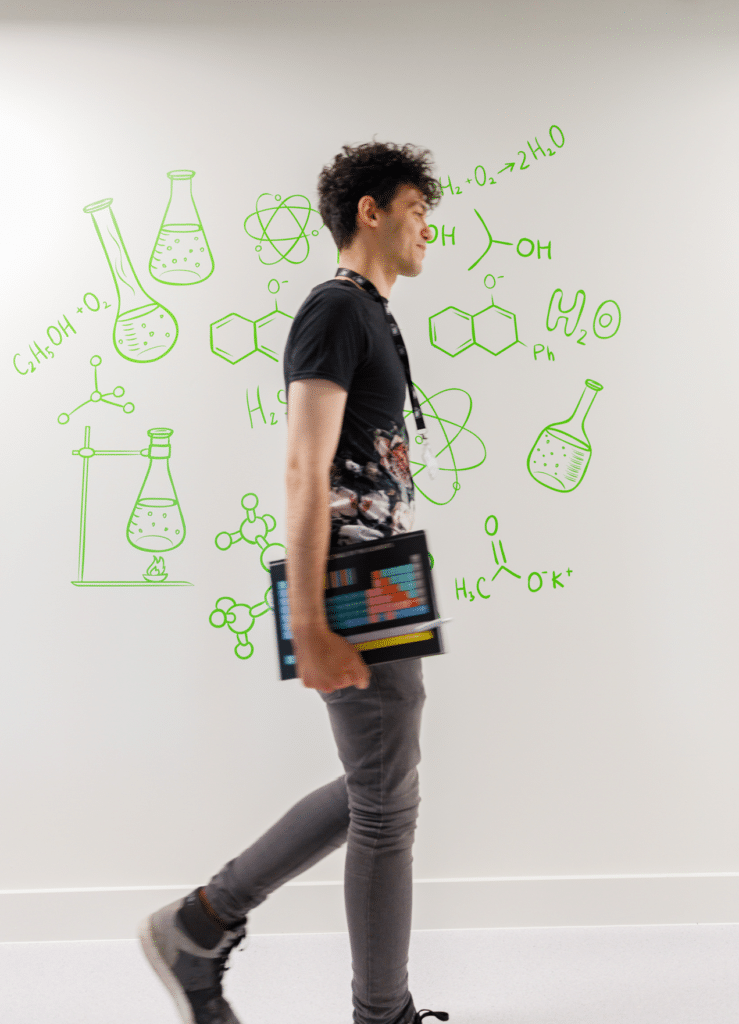
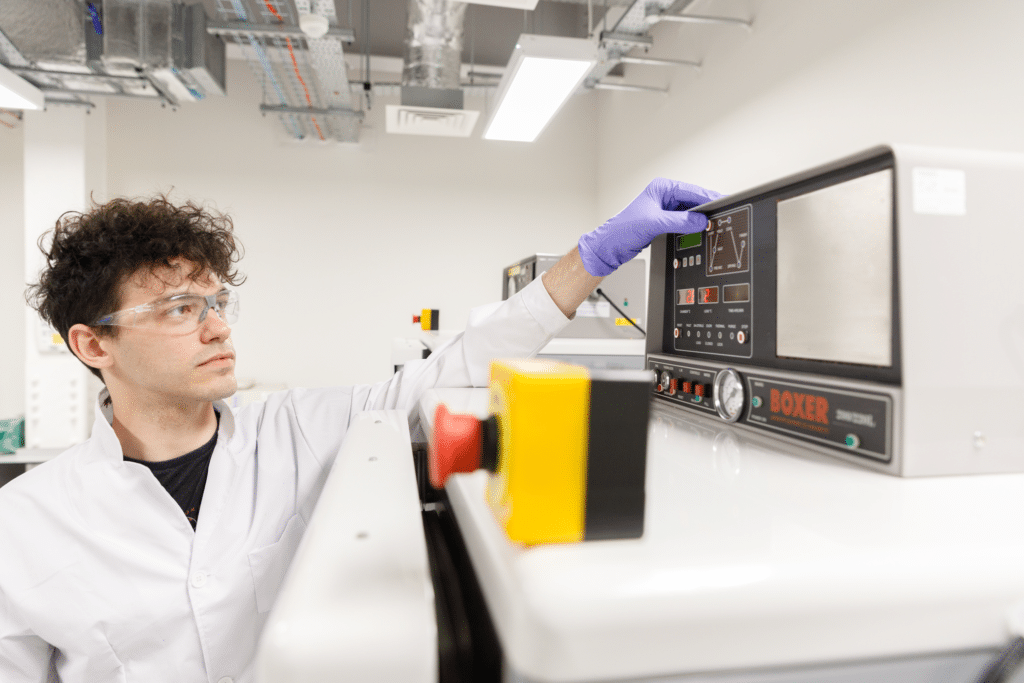
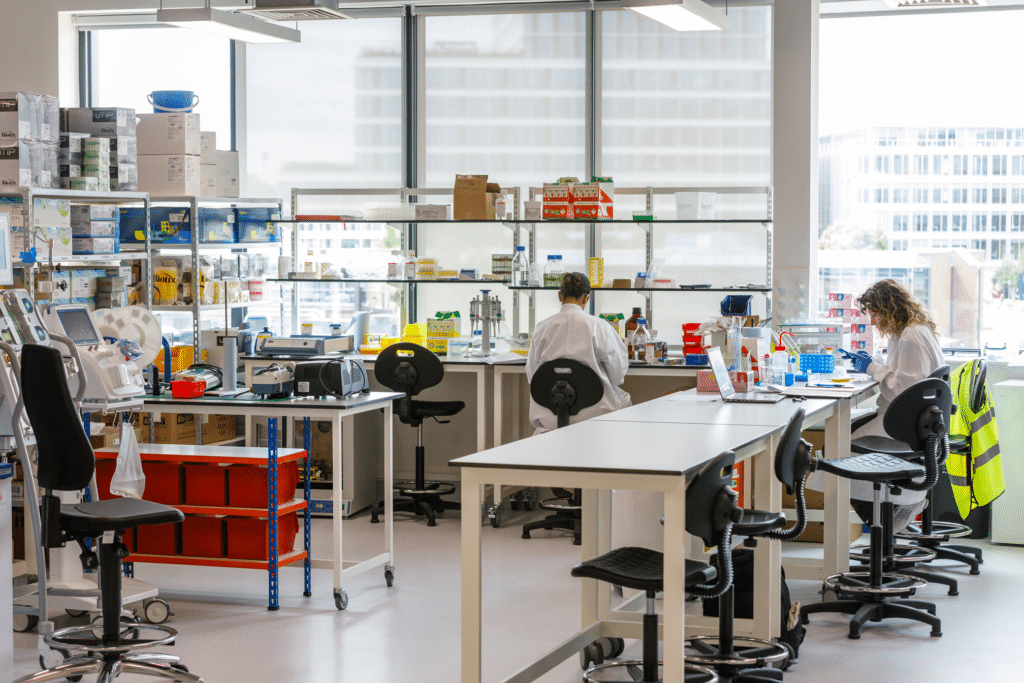
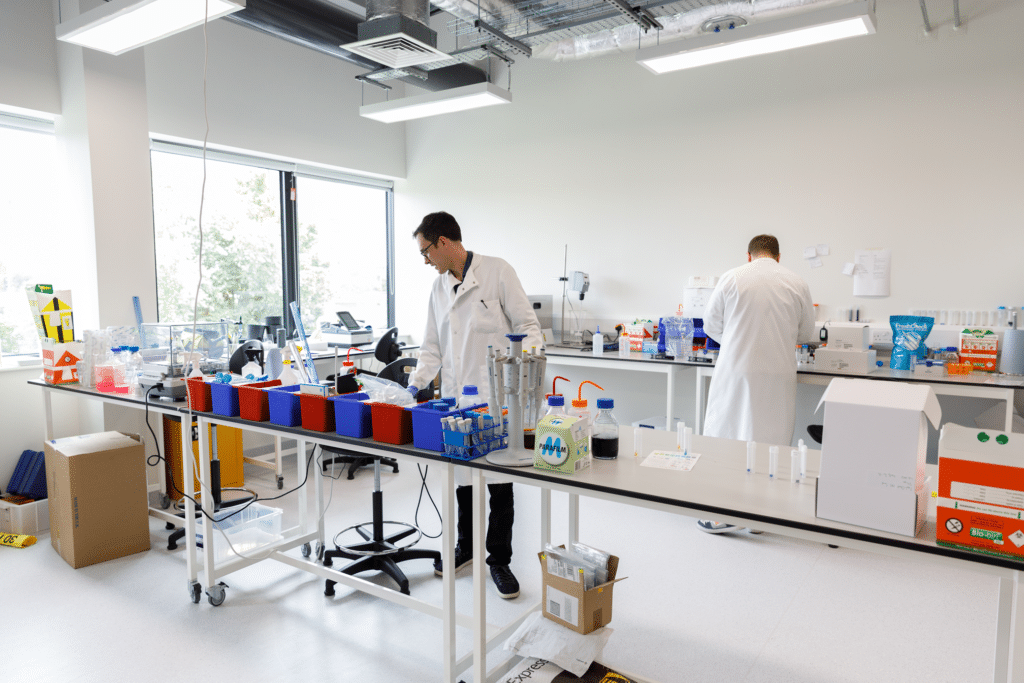
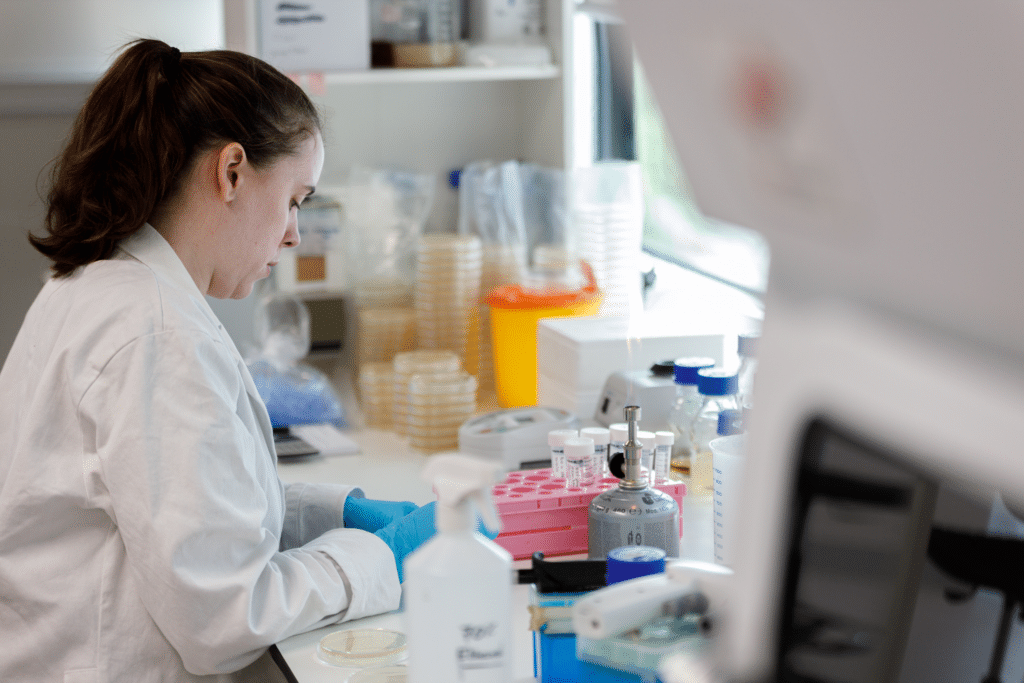
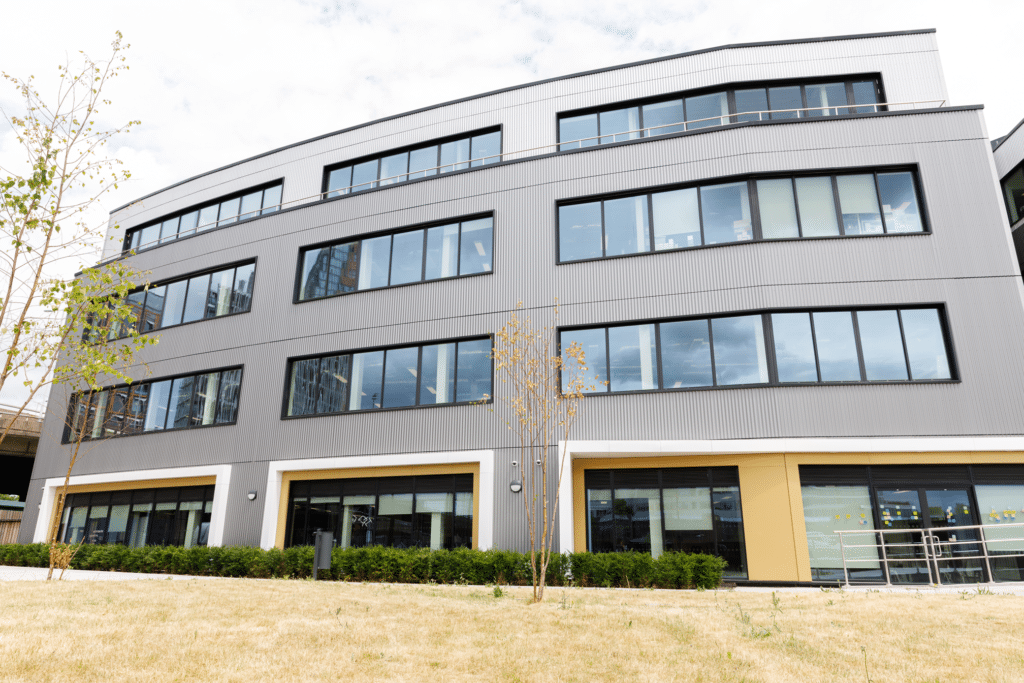
Imperial Incubator companies pictured at work in White City (Scale Space). Innovative start-ups benefit from insider access to Imperial’s world-class research, talent, programmes and facilities.
Puraffinity
Imperial spin-out Puraffinity is an advanced materials company that designs and develops novel adsorbent media to remove per- and polyfluoroalkyl substances (PFAS) from water across the residential, commercial, industrial, municipal and environmental services market sectors. The company’s vision is to improve human and environmental health by effectively removing PFAS from water.
Fast facts:
- Founders: Imperial alumni Henrik Hagemann and Gabi Santosa
- Founding year: 2015
- Graduation from the Incubator: Jan 2022
- Currently based: Scale Space, White City Innovation District
- Current no. of employees: 32
- Funding raised to date: total Series A fund-raising £17M
- How has being supported by the Imperial Incubator contributed to your success?
The Incubator has provided access to world-class laboratory facilities, expert business coaching, and an inclusive entrepreneurial community. This support allowed us to refine our technology, Puratech G400, in a collaborative environment while benefiting from networking opportunities and mentorship that accelerated our growth trajectory. The ability to test and develop our solution in such a well-equipped space has been instrumental to our development as a company.
- What impact has being part of the Incubator had on your ability to raise funding and investment?
Being part of the Incubator enhanced our credibility as a deep-tech startup, showcasing our potential to investors. The access to state-of-the-art labs and Imperial’s entrepreneurial ecosystem played a key role in securing significant funding rounds, including our Series A funding, which totalled over £16.9 million.
- What collaborations and new opportunities have being based in White City Innovation District opened up?
The White City Innovation District fostered collaborations with leading academic institutions, which has provided access to talent, industry experts, and other startups. This has allowed us to connect with specialists across life sciences, cleantech, and engineering sectors. We’ve gone for breakfasts with other founders to share tactics on embedding the latest tech advances or how to negotiate a fundraise as very tangibly helpful input.
- How important has access to advanced facilities and lab space been to your innovation journey?
Access to advanced facilities, such as laboratories and shared equipment at the Incubator, was critical for developing and testing Puraffinity’s predictive materials discovery process and the products to tackle a big environmental crisis. That requires health and safety precautions for the labs themselves, especially when taking toxic forever contaminants out of water. These resources allowed us to focus on innovation without the logistical challenges of establishing independent lab infrastructure. The availability of equipment streamlined our R&D processes and enabled rapid development of our product.
- What is the single highlight of your time in the Incubator?
Going for the West London Business Awards dinner with the Incubator team and winning the Tech Company of the Year prize. That was an epic culmination to mark the transition from the shared lab space into our dedicated facility at Scale Space. This transition symbolised the validation of Puratech G400’s potential to address critical environmental challenges.
- What’s next for the company?
Embedding the current macro trend of GenAI into material science discovery to tackle pollution is a VERY top of mind. That’s alongside the focus on scaling up production, expanding commercial applications for Puratech G400, and achieving our goal of improving human and environmental health by effectively removing PFAS from water. Additionally, we’re growing the team, investing heavily in R&D capabilities, and building strategic partnerships to accelerate global market entry.
RFC Power
RFC Power is dedicated to helping the world store renewable energy, simply and safely so it can be used whenever it’s needed. The company specialises in developing novel flow battery chemistries for energy storage systems.
Originally spun out from Imperial College London’s Department of Engineering and Department of Chemistry, the core activities of RFC Power are the chemistry, cell architecture and the optimisation of flow battery stack components. RFC Power is working with partners to build and market its storage systems making use of existing production facilities, supplier networks and economies of scale.
Fast facts:
- Founders: Imperial’s Professor Nigel Brandon, Professor Anthony Kucernak, Dr Vladimir Yufit, and Dr. Javier Rubio Garcia
- Founding year: 2017
- Graduation from the Incubator: April 2023
- Currently based: Scale Space, White City Innovation District
- Current no. of employees: 10
- Funding raised to date: $5.5M
- How has being supported by Imperial Incubator contributed to your success?
Getting access to lab space in the Incubator was critical to enabling RFC Power to develop our unique energy storage technology. This space came with the facilities we needed to conduct our chemistry and materials research, and the flexibility that allowed us to expand as the business grew. The in-house support provided by the Incubator team allowed us to focus on the business and our technology, accelerating our development and enabling us to hit key milestones.
- What impact has being part of the Incubator had on your ability to raise funding and investment?Being able to invite potential investors to visit our labs and facilities in the incubator was a big part of building credibility for RFC Power, making it easier for investors to understand our technology.
- What collaborations and new opportunities has being based in White City Innovation District opened up?
Being part of the White City Innovation District gives us access to a huge range of facilities that we have made use of on multiple occasions, including the Agilent Suite in the MSRH and the Royce Centre in the Uren building. It has also made it easier to hire new employees, as they are attracted to working in such an innovative and dynamic environment.
- How important has access to advanced facilities and lab space been to your innovation journey?
Getting access to high quality lab space was the number 1 motivation for us in joining the Incubator. We were at a critical stage of technology development, with some aggressive performance targets to hit. Being able to move into a fully fitted lab allowed us to hit the ground running and start working on technology development on day one.
- What is the single highlight of your time in the Incubator?
The highlight of our time at the Incubator was actually our graduation from the programme after 3 years. It was recognition that we had transitioned from being a fledgling start-up to a growing business, having secured 2 rounds of seed funding and multiple grants. We were so satisfied with our set up that we actually stayed in the labs we have been renting from the Incubator when they moved over to Scale Space and have gradually taken on more space over the last 2 years.
- What’s next for the company?
We are in the process of wrapping up a Series A funding round, building on successful corporate partnerships with leaders in the global renewable energy industry, and are ready to scale.
Recent funding for Imperial Incubator companies
- Addionics (Incubator graduate), £30M Series B round, July 2024
Addionics – developers of advanced 3D Current Collectors for the next generation of rechargeable batteries – celebrated closing a £30M Series B funding round last year. The funding round was co-led by GM Ventures and Deep Insight, with participation from Scania, along with new and returning strategic investors. This latest investment will support the company’s operational growth and global business expansion. Addionics was founded by Imperial academics Moshiel Biton (CEO), Farid Tariq (CSO) and Vladimir Yufit (CTO) and is a graduate of Imperial Enterprise Labs’ Techcelerate customer discovery and market validation accelerator programme. The company is now the leading manufacturer of 3D Current Collectors, which is driving significant battery manufacturing and performance benefits – including better heat dissipation throughout electrodes, faster charging times, increased power and improved stability, culminating in better-performing batteries at a lower cost.
- P.Happi® (current Imperial White City Incubator company), UK Biomedical Catalyst Grant from Innovate UK, July 2024
Biotech start-up P.Happi® is on a mission: to empower women to take control of their intimate wellbeing. The all-female team of scientists recently launched the company’s first product – an innovative daily serum that forms a barrier to help protect the intimate female area from the ‘bad’ bacteria that can disrupt the microbiome and cause discomfort and health issues ranging from urinary tract infections (UTIs) to thrush. The product is now available in UK pharmacies online and in-store, including Boots. Last year, the company announced that it had won a UK Biomedical Catalyst Grant from Innovate UK to expand its innovation and research in the women’s health space. The grant will enable the team to conduct a further microbiome study. Learn more in our Day in the Life profile of Chanelle Ryan, Senior Scientist for P.Happi®.
- Mytos (Incubator graduate now based at I-HUB), $19M funding, November 2023
Mytos, a biotech company co-founded by Imperial College London alumni Ali Afshar and Ignacio Willats, announced a $19 million Series A investment led by Buckley Ventures in November 2023. The company specialises in automating the manufacture of human cell cultures and will use the funding to accelerate the manufacturing and distribution of Mytos’ automated cell production system to more biotech and pharma companies, to meet growing demand.
- SPARTA Biodiscovery (current Incubator member), up to £3.5M funding, September 2023
Imperial College London spin-out SPARTA Biodiscovery closed a multi-million-pound seed investment in 2023 from industry partner Sartorius that will support the deployment of SPARTA’s nanoformulations for next-generation therapeutics in a range of commercial settings. Building on prototypes developed in Professor Molly Stevens’ group in Imperial’s Department of Materials, the company’s Single Particle Automated Raman Trapping Analysis (SPARTA®) platform can provide detailed physico-chemical analysis of nanoparticles at high throughput on a single-particle basis. The platform will help accelerate the design of nanoparticles before they progress to clinical trials and play a key role in manufacturing and quality control.
- Pear Bio (Incubator graduate now based at I-HUB), $14M funding, May 2023
Pear Bio raised $14m in Series A funding in 2023, led by Octopus Ventures with participation from Hoxton Ventures, Crista Galli Ventures, SOSV, Fly Ventures and Compound Ventures. The fast-growth start-up is working on ground-breaking ways to improve the efficacy of cancer drug treatment – using a highly innovative computational biology platform that can track cancer progression and predict future drug response. The funding will enable the team to conduct clinical studies to predict patient response to approved treatments, while using the resulting lab and real-world clinical data to discover new therapies for cancer patients with high unmet needs.
- Polymateria (Incubator graduate now based at I-HUB), £20M funding, May 2023
Polymateria, the creators of a revolutionary biotransformation technology, secured £20 million in Series B funding in May 2023. ABC Impact and Indorama Ventures led the funding round. Polymateria – which started life at Imperial’s Incubator in White City – is using this investment to drive the global commercialisation of its technology that safely breaks down plastics when discharged into the environment.
- Multus (Incubator graduate now based at I-HUB), £7.9M funding, January 2023
Cellular agriculture solution pioneer Multus secured a total of £7.9 million at the beginning of 2023, through a Series A investment led by Mandi Ventures and including SynBioVen, SOSV (Indie Bio), Big Idea Ventures and Asahi Kasei. Multus also secured £2.15m ($2.5m) from Innovate UK as part of the highly-competitive EIC Accelerator. The biotech start-up specialises in creating animal-free growth media to produce cultivated meat. The investment is being used to fund further R&D and accelerate the development of the cultivated meat industry. It will also enable Multus to speed its product development in advanced growth media formulations and food-grade raw materials. Last year, Multus opened a world-first media manufacturing facility to help scaling cultivated meat companies cut costs and accelerate from lab to market. The new facility is the first of its kind to achieve FSSC 22000 certification, establishing Multus as a ‘food-safe’ global scaling partner.
- MiNA Therapeutics (Incubator graduate now based at I-HUB), multiple funding rounds including a $15M investment from Eli Lilly in 2021 and $30M Series A financing round in 2020
Imperial spin-out MiNA Therapeutics – co-founded by Nagy Habib, Professor of Hepatobiliary Surgery at Imperial – was one of the first companies to move into the Imperial White City Incubator facilities at I-HUB in 2017. MiNA Therapeutics is the global leader in small activating RNA therapeutics or RNAa. Harnessing innate mechanisms of gene activation, RNAa therapeutics are a revolutionary new class of medicines that can restore or boost normal function of genes and thereby protein-modulated pathways in cells. In 2024, the company announced a research collaboration and licensing agreement option with Japanese pharmaceutical company Nippon Shinyaku Co., Ltd. (Nippon Shinyaku; Headquarters: Kyoto; President: Toru Nakai) for the discovery, potential development and commercialization of RNAa therapeutic candidates targeting rare neurodegenerative diseases for which there are currently no treatment options.
Current Imperial Incubator companies and graduates that have also recently announced news of fundraising success and key grant awards:
- CipherX Technologies (current)
- CyanoSkin (current)
- Kodiform Therapeutics (current)
- Solena Materials (Incubator graduate now based at I-HUB)
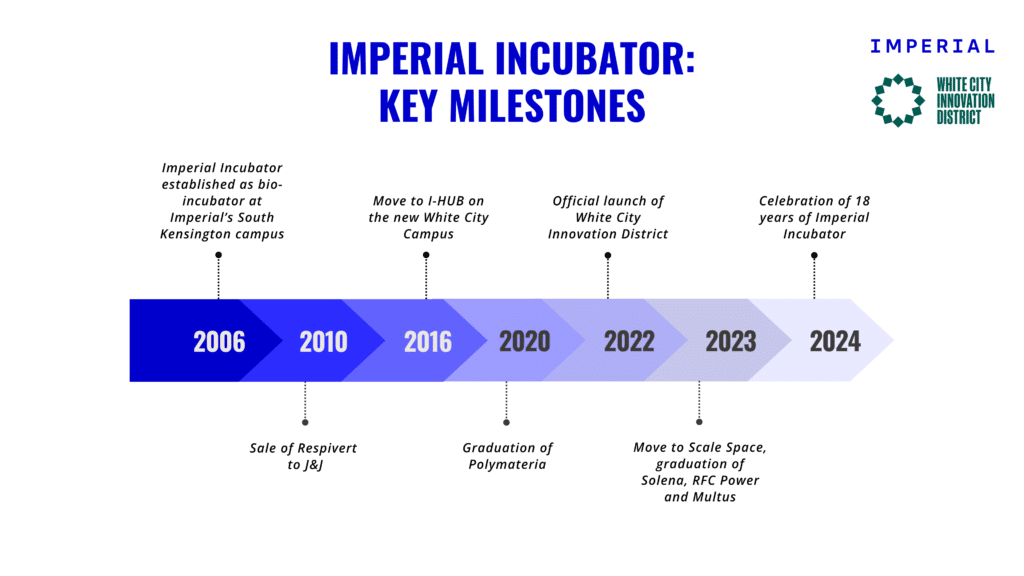
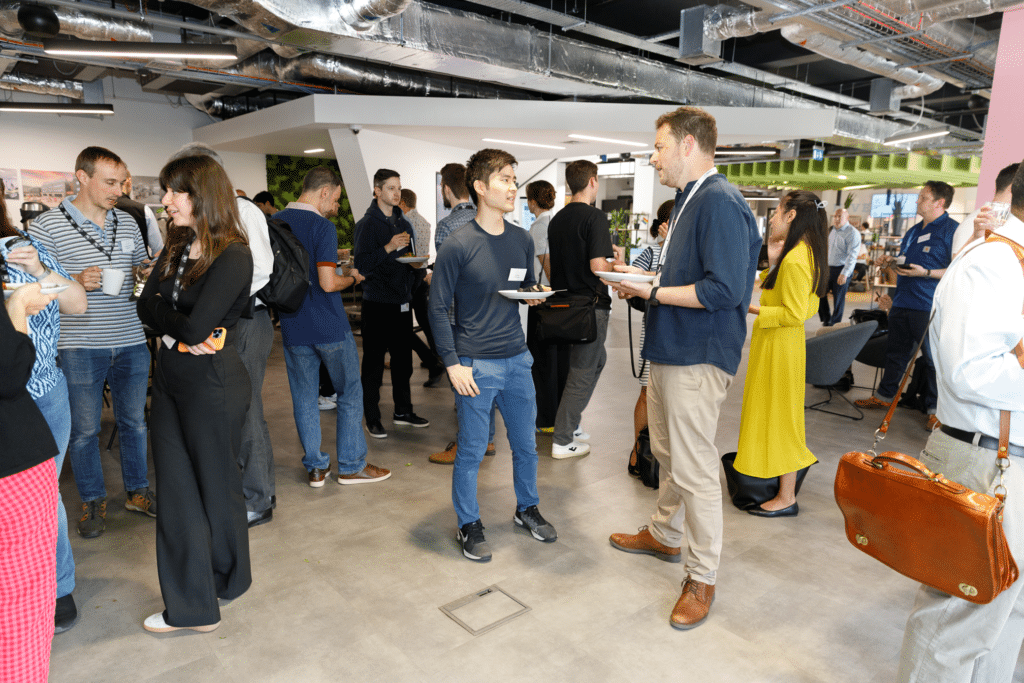
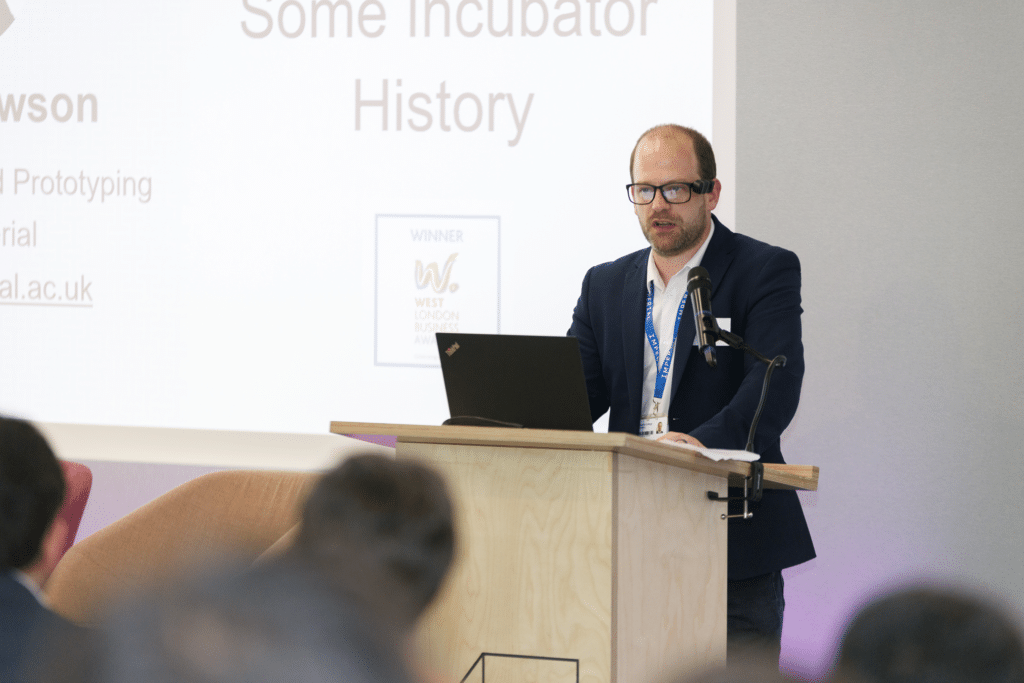
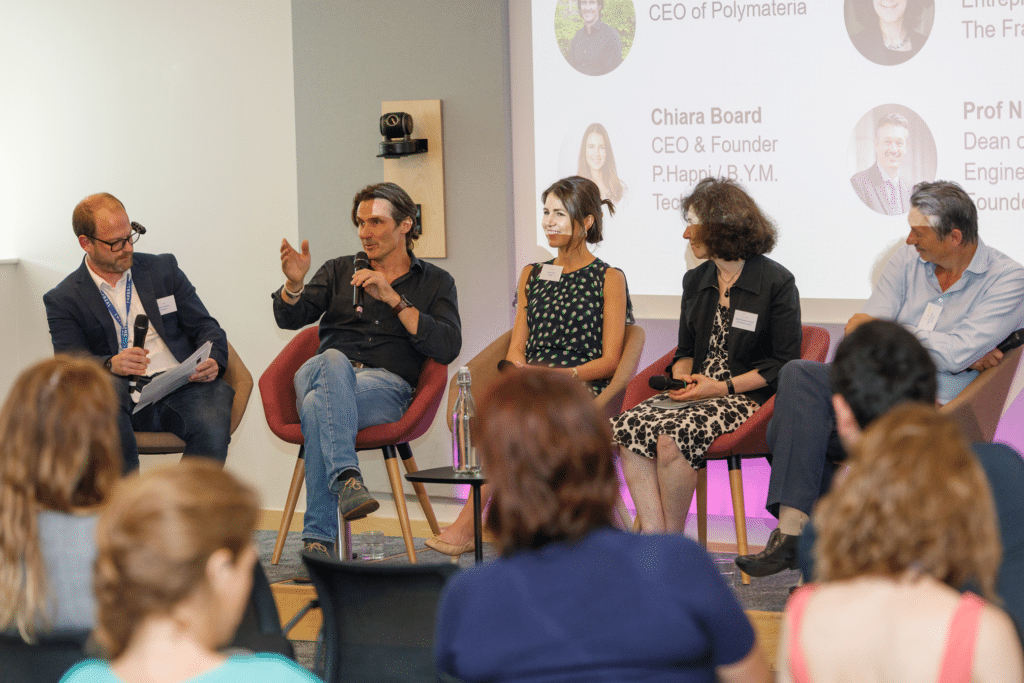
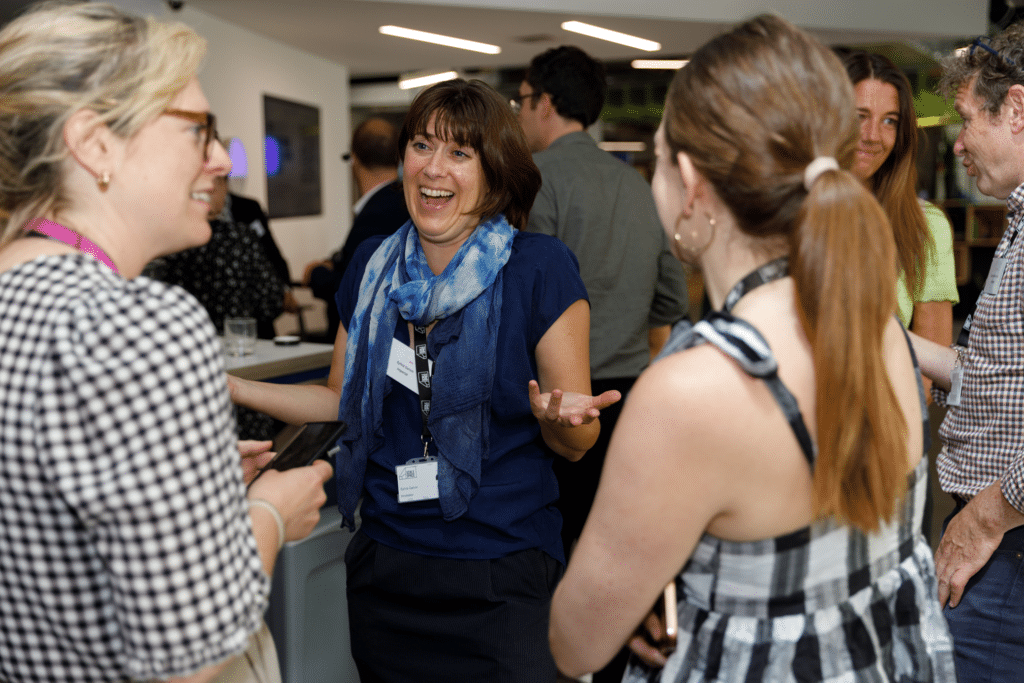
Imperial Incubator marks its 18th anniversary with a special showcase celebration held at Scale Space in White City Innovation District in June 2024. Pictured clockwise L-R: 1) Attendees networking; 2) Graham Hewson – Head of Incubation and Prototyping Spaces, Imperial College London – addresses the audience; 3) Panellists discuss the Incubator’s impact – Graham Hewson (Imperial), Niall Dunne (Polymateria), Dr Chiara Board (P.Happi), Barbara Domayne-Hayman (Francis Crick Institute), Professor Nigel Brandon (Imperial, RFC Power and Ceres Power) 4) Sylvia Garvin, Marketing and Communications Manager for Imperial Incubator
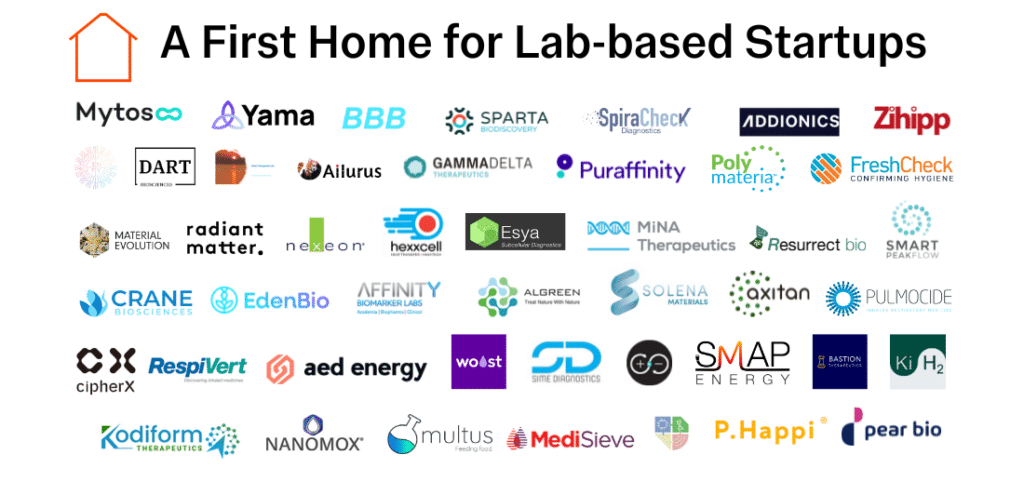
To discover more about Imperial Incubator and the opportunities available, please visit www.imperialincubator.com
